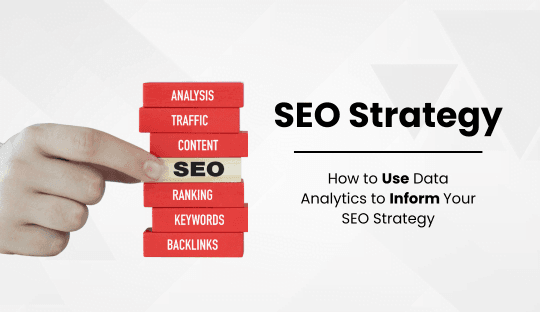
How to Use Data Analytics to Inform Your SEO Strategy
In the evolving landscape of digital marketing, leveraging data analytics is crucial for crafting effective SEO strategies. For creative brand companies like Flykez CO in Malta, data-driven insights can significantly enhance their approach to search engine optimization. Specializing in website design & development, search engine optimization, brand design & brand identity, digital marketing, and UI & UX design, Flykez CO can utilize data analytics to stay ahead of the competition and achieve superior results.
Understanding the Role of Data Analytics in SEO
Data analytics involves collecting, processing, and interpreting data to make informed decisions. In the context of SEO, this means analyzing various metrics to understand how your website is performing and where improvements can be made. By using SEO audit tools, businesses can gain insights into their website’s health, performance, and optimization opportunities.
Benefits of Data-Driven SEO
Improved Decision Making
Using data analytics allows businesses to make informed decisions based on real-time data rather than intuition. This leads to more effective and efficient SEO strategies, ensuring that efforts are focused on areas with the highest potential impact.
Enhanced User Experience
Analyzing user behavior data helps identify areas where the user experience can be improved. This might include optimizing page load times, improving mobile responsiveness, or enhancing site navigation. Better user experience not only improves SEO rankings but also increases user engagement and conversion rates.
Key Areas to Focus On
SEO Audit Tools
SEO audit tools are essential for identifying issues and opportunities on your website. Tools like SEMrush, Ahrefs, and Moz provide comprehensive audits that cover various aspects of SEO, including technical issues, on-page SEO, and backlink profiles. Regularly using these tools helps maintain a healthy website and ensures it meets current SEO standards. Also Read About The Evolution of Backlinks: Are They Still Relevant in 2024?
SEO for Mobile Devices
With the increasing use of mobile devices, optimizing your website for mobile is crucial. Google’s mobile-first indexing means that the mobile version of your site is considered the primary version. Use data analytics to monitor mobile traffic, page load times, and user behavior on mobile devices. Ensuring a responsive design and fast load times can significantly boost your mobile SEO performance.
Video SEO
Video content is becoming increasingly important in SEO strategies. Analyzing video performance data, such as view counts, watch time, and engagement rates, can provide insights into what type of video content resonates with your audience. Additionally, optimizing video titles, descriptions, and tags with relevant keywords can improve visibility on search engines.
Implementing Data-Driven SEO Strategies
Integrating SEO and Social Media
Social media and SEO can work together to enhance your online presence. By analyzing social media data, you can identify which content performs well and drives traffic to your website. Use this data to inform your SEO strategy, creating content that is more likely to be shared and linked to from social media platforms.
Trust Signals in SEO
Trust signals, such as HTTPS certification, user reviews, and authoritative backlinks, are crucial for building credibility with both users and search engines. Data analytics can help track these signals and measure their impact on your SEO performance. Regularly monitor and improve trust signals to enhance your site’s authority and ranking.
AI-Generated Content
AI tools can assist in content creation by analyzing large datasets to identify trending topics and relevant keywords. These tools can generate content outlines, suggest keywords, and even produce drafts, making the content creation process more efficient. However, it’s essential to review and refine AI-generated content to ensure it meets quality standards and aligns with your brand voice.
Monitoring and Adapting SEO Strategies
Using SERP Features
Search Engine Results Page (SERP) features, such as featured snippets, local packs, and knowledge panels, can significantly enhance visibility. Data analytics can help identify which SERP features are most relevant to your content and provide insights into optimizing for these features. Aim to create content that answers common questions and provides valuable information to increase the chances of appearing in these features.
PPC Strategies 2024
Pay-per-click (PPC) advertising can complement your SEO efforts by driving immediate traffic to your site. Use data analytics to monitor the performance of your PPC campaigns, including click-through rates, conversion rates, and return on investment. Integrating PPC data with your SEO strategy can help identify high-performing keywords and optimize your overall digital marketing efforts.
Conclusion
Data analytics is a powerful tool for informing and enhancing your SEO strategy. For Flykez CO, leveraging data-driven insights can lead to improved decision-making, enhanced user experiences, and better overall SEO performance. By focusing on key areas such as mobile optimization, video SEO, and integrating social media with SEO, Flykez CO can stay ahead in the competitive digital landscape.
For more information on how Flykez CO can help your brand leverage data analytics for an effective SEO strategy, visit www.flykez.com.
